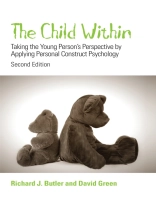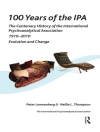Many young people appear troubled. Sometimes their behaviour can intimidate or simply baffle. Drawing on the principles of Personal Construct Theory and now fully updated in response to popular demand, The Child Within helps develop our understanding of how children make sense of the world and themselves – and offers solutions for resolving the dilemmas they face. Practical applications of Personal Construct Theory are illustrated using cases coupled with the authors’ own research. The Second Edition includes seven brand new chapters and a guest chapter by Harry Procter on working with families.
Table des matières
About the Authors.
Influences.
Foreword.
Acknowledgements.
1. Fundamental principles.
2. Adopting a credulous approach.
3. The framework of personal construct theory.
4. Discover Children’s construing.
5. The exploration of self.
6. Core construing.
7. Performance and competence.
8. The growth of sociality.
9. Troublesome behavior.
10. Exploring avenues of change.
11. Being in trouble with the law.
12. Exploring illness.
13. Construing within the family (Harry Procter)
14. An evidence base.
References.
Author Index.
Subject Index.
A propos de l’auteur
Richard Butler is a Consultant Clinical Psychologist with
the child and adolescent mental health services in Leeds and an
Honorary Lecturer at the University of Leeds. He qualified at
Bristol University, undertook clinical practice at High Royds
Hospital working alongside Don Bannister, participated as a sports
psychologist with the British Olympic Association, worked with the
World Health Organization on structuring assessment and treatment
approaches for nocturnal enuresis and is involved with the Avon
longitudinal Survey of Parents and Children in researching
preventative strategies in child health. Throughout his work he has
sought to draw on the principles of personal construct theory to
help people enhance their psychological functioning. He is the
creator of performance profiling, a methods of enhancing sporting
performance; co-author of the three systems approach to
understanding and treating nocturnal enuresis; and more latterly
developed the Self Image Profile as a means of understanding and
assessing how children and adults construe themselves. Amongst his
other interests is the active study of consistently poor golf,
collecting vinyl records and suffering the trauma of supporting
Huddersfield Town.
David Green is Clinical Director of the Doctor of
Clinical Psychology training programme at the University of Leeds.
He has worked with children and adolescents and their
families for over 30 years and currently contributes clinical
psychology support to the paediatric oncology service at St James
University Hospital in Leeds. He is a long-standing Kellyan and has
written and presented a series of papers on personal construct
approaches to therapeutic work with young people on topics such as
fixed role therapy and paediatric health care. He also has a keen
interest in the processes of professional training, especially the
role of clinical supervision.












